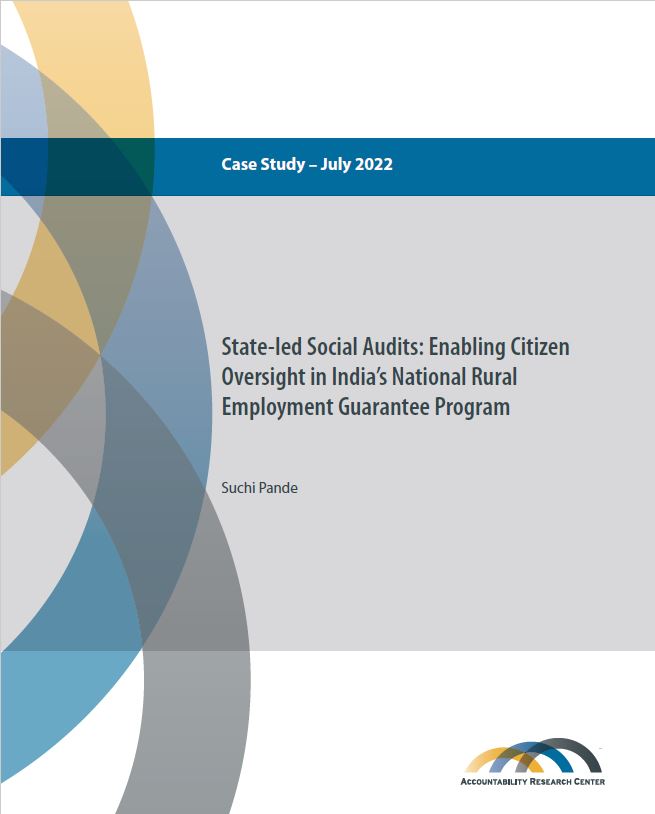[osd_social_media_sharing]

State-led Social Audits: Enabling Citizen Oversight in India’s National Rural Employment Guarantee Program
Date: July 2022
Author(s): Suchi Pande
Publication type:
Published by: Accountability Research Center
“Sandwich strategies” are interactive processes in which reformers in government take tangible measures that reduce the risks of citizen action from below, driving virtuous circles of mutual empowerment between pro-accountability actors in state and society. This case study is one of a set of 18 published here, which are among those included in comparative analyses of whether and how sandwich strategy initiatives drive institutional change.
India’s National Rural Employment Guarantee (NREGA) program is one of the largest public works programs in the world. It entitles all rural adults the legal right to paid work for one hundred days in a year, and mandates state governments to provide unskilled manual work to all those who demand it. Concerns about corruption were central to debates leading to the enactment of the law.
Social audits are a participatory citizen oversight mechanism to detect and prevent corruption, and this case study documents state-civil society collaboration to implement them effectively to reduce corruption in NREGA. It traces four cycles of convergence and conflict between state and civil society actors at the national and sub-national levels.
First, grassroots mobilization for payment of minimum wages to daily wage workers led to the emergence of social audits, public hearings about the program convened by citizens and social movements.
Second, a preliminary opening from above at the national level created an enabling environment for activists to negotiate and make NREGA social audits legally binding on state governments.
Third, an opening at the sub-national level allowed political and bureaucratic elites to create an enabling environment to organize collective action through NREGA social audits.
Fourth, auditing standards were co-produced by the country’s Comptroller and Auditor General, right-to-work activists, and the national Ministry for Rural Development.
The case study concludes by reflecting on some lessons from the ongoing efforts to implement NREGA social audits.
Suchi Pande is scholar-in-residence at the Accountability Research Center. She has extensive research and practical experience in the field of social accountability, including implementing right to information laws and public oversight processes, consultancies with international organizations, leadership of action-research initiatives at American University in the US, and doctoral research at the Institute of Development Studies at the University of Sussex in the UK. Before joining ARC, Suchi worked with the National Campaign for People’s Right to Information and the Mazdoor Kisan Shakti Sangathan in India. She is currently researching national grievance redress mechanisms in the public sector.
